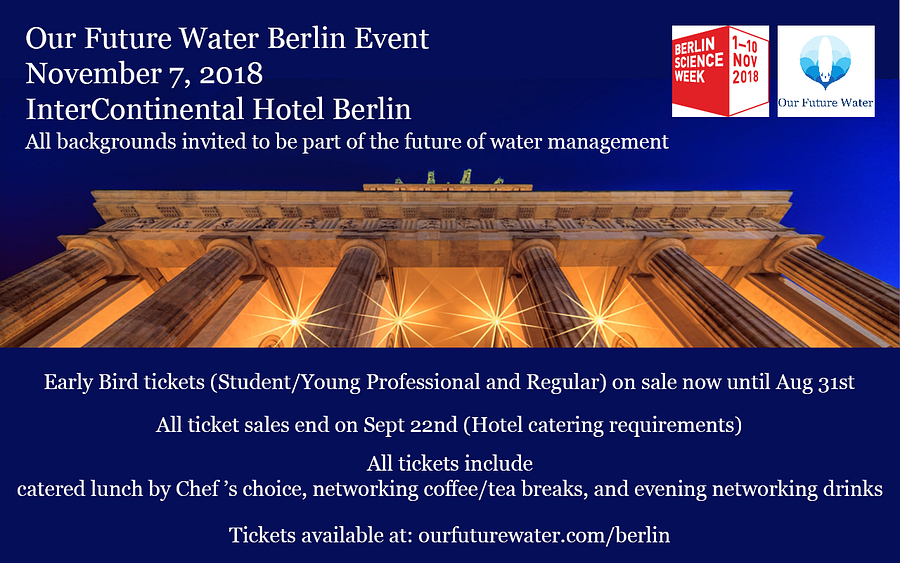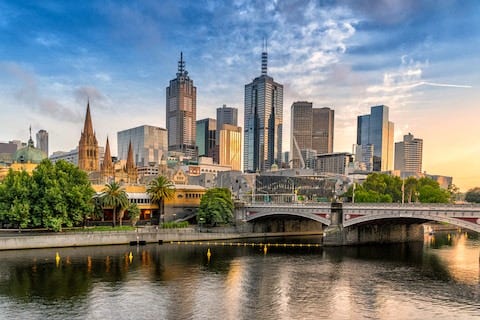Developing alternative water supplies
Published on by Robert Brears, Founder of Our Future Water, Young Water Leaders, Mitidaption & Author (Springer Nature, Wiley) in Technology
Even after the successful implementation of demand management strategies to balance rising demand with limited supplies of water, there are regions around the world where water scarcity has required the seeking of alternative water supply sources.
By Robert C. Brears
Singapore’s NEWater
Singapore’s Public Utilities Board recycles treated used water into ultra-clean, high-grade reclaimed water: NEWater. In total, five NEWater plants supply up to 40% of the city-state’s current water needs. By 2060, it is projected that NEWater will meet up to 55% of Singapore’s future water demand. NEWater is created from a three-step process involving microfiltration, where microscopic particles including bacteria are filtered out, reverse osmosis, in which contaminants are removed to create high-grade water, and ultraviolet disinfection, where water passes through ultraviolet light ensuring any remaining organisms are eradicated. Because of its ultra-clean state, NEWater is used for industrial and air-con cooling purposes at water fabrication plants, industrial estates, and commercial buildings.
Melbourne’s City West Water’s Recycled Water Project
In Melbourne, City West Water’s West Wyndham Recycled Water Project aims to deliver high quality, Class A recycled water to housing estates in the Wyndham area, as well as a number of open spaces managed by the Wyndham City Council (Class A recycled water can only be used for toilet flushing, car washing on grassed areas, garden watering, filling water features, providing drinking water for pets, and washing machines). Currently, recycled water — a mix of drinking water and recycled water — is supplied to around 3,750 homes in the area. The aim of the West Wyndham Recycled Water Project is to create a supply of 100 percent recycled water.
City of Tucson’s Rainwater harvesting rebate
Tucson Water in Arizona is providing rebates for qualifying rainwater harvesting systems up to $2,000 per property. To qualify, applicants must be Tucson Water customers and attend an approved Rainwater Harvesting Incentives Program Workshop that covers topics including what rainwater harvesting is, best methods to conserve potable water by utilizing rainwater harvesting systems, and how to develop a rainwater harvesting project plan.
The take-out
Overall, cities facing acute water scarcity can develop and encourage a variety of alternative water supply sources including recycled water for industrial and non-potable uses and rainwater harvesting systems to reduce demand for potable water for non-potable-required uses including irrigation.
*Robert C. Brears is the author of Urban Water Security (Wiley) The Green Economy and the Water-Energy-Food Nexus (Palgrave Macmillan), Natural Resource Management and the Circular Economy (Palgrave Macmillan), Blue and Green Cities: The Role of Blue-Green Infrastructure in Managing Urban Water Resources (Palgrave Macmillan) and editor of Climate Resilient Water Resources Management (Palgrave Macmillan). He is Founder of Our Future Water, Mitidaption, and Mark and Focus.
· LinkedIn Groups: Our Future Water / Urban Water Security
· Twitter: Mitidaption / YoungH20Leader / Our Future Water

Attached link
https://medium.com/mark-and-focus/developing-alternative-water-supplies-7580e4794f6aMedia
Taxonomy
- Raw Sewage Recycling
- Water Reuse & Recycling
- Solid Wastes & Wastewater Recycling
- Water Recycling
- Recycling
1 Comment
-
All good ideas. Need to implement them in California!
